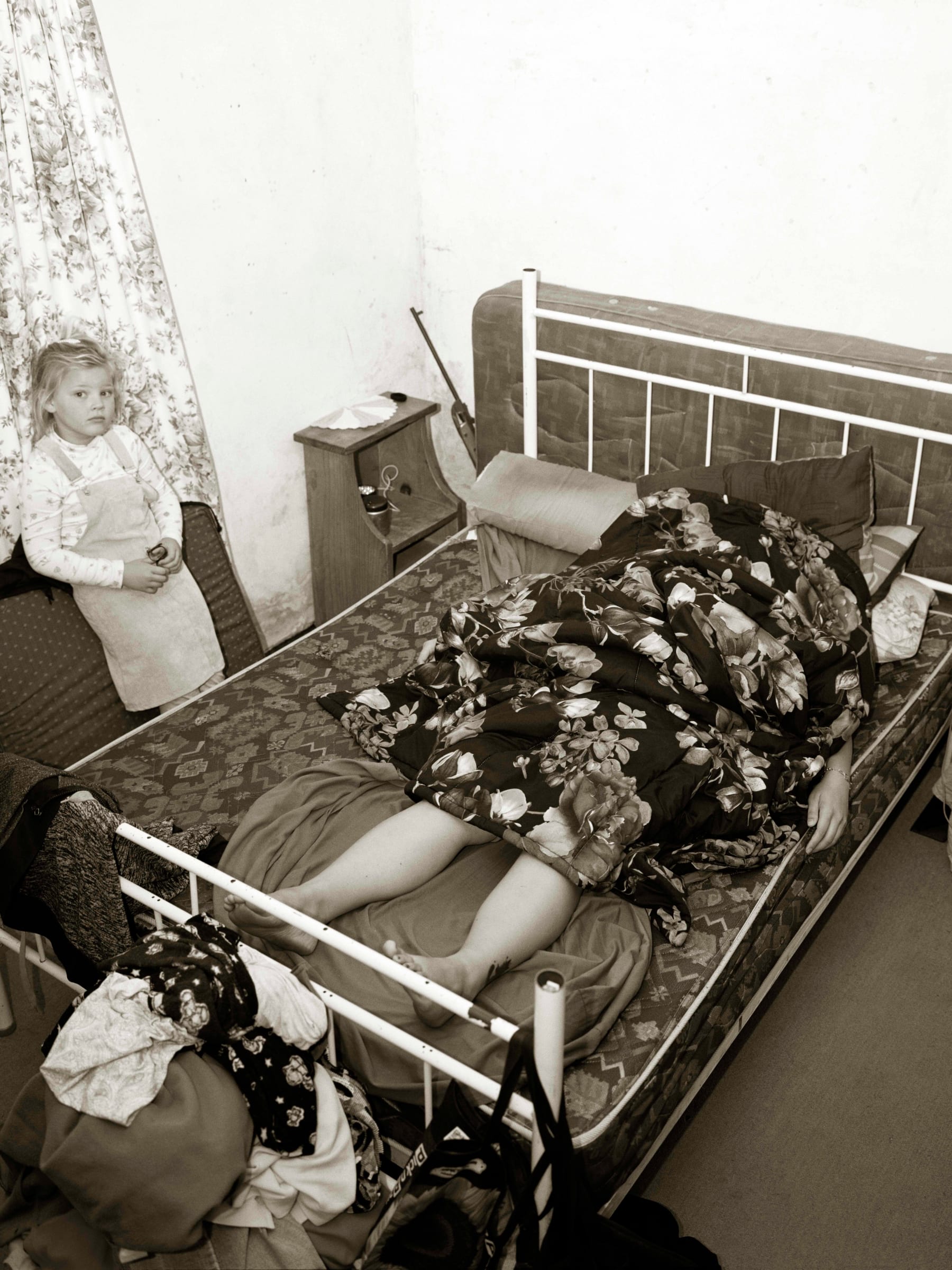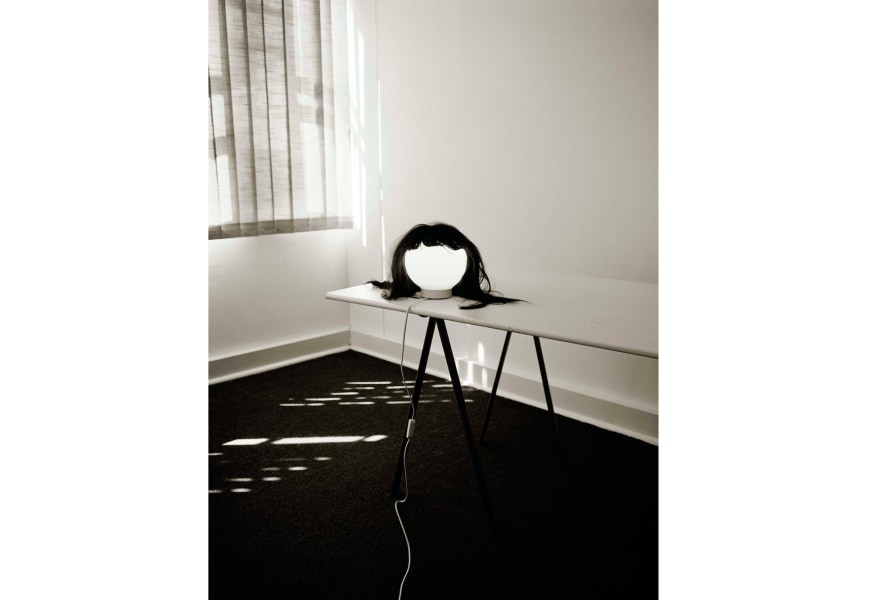20 august 2023, Wouter van den Eijkel
Looking for Eden - Johno Mellish’s exploration of the notion of Eden in South Africa
At Unseen, THK Gallery presents Wild Natural Setting, a new series by young South African photographer Johno Mellish. In recent years, Mellish has made a name for himself with work that combines elements of staged and documentary photography, resulting in everyday scenes that are both familiar and alienating. Many feature pastel colours, but all of them are taken in Cape Town and the surrounding areas.
For Wild Natural Setting, Mellish leaves Cape Town for the Garden Route and, in his search for a visual representation of the Garden of Eden, works not in colour, but in black and white. A conversation about Wild Natural Setting, his work and sources of inspiration.
Johno Mellish (Cape Town, 1991) was trained as a director at the AFDA Film School and completed a post-graduate course in photography at the Michaelis School of Fine Art in 2017. Since 2019, he has been represented by the THK Gallery. Mellish lives and works in Cape Town, South Africa.
THK Gallery be showing Wild Natural Setting at Unseen Could you tell us the theme of the work?
THK Gallery is showing a black-and-white body of work called Wild Natural Setting. The pictures were mostly taken along the Garden Route in South Africa. I'm interested in that area because in a sense, it's both an Edenic place for me, and for many other South Africans, and the general area is actually called the Eden District. I wanted to explore the notion of an Eden in South Africa and create a visual representation of that. The work is a continuation of what I’ve been doing in the area for a while. I consider it a small chapter.
Secondly, I wanted to toy with the cliché of holiday photography because that’s often when people take the most pictures and I’m interested in exploring the different ‘modes’ in photography. So, here is me taking lots of pictures over the holiday season. That’s why I used black and white, since the process allows for more pictures to be made because it's simpler to edit and process. I also like that black-and-white photography has an aura of the serious. I wanted to explore that. Some of this work was made on my phone and some with a traditional camera. Someone once called me a 'visual Dj’. In a sense, I was trying to mix leisure with work. I think, specifically, I was trying to understand my role as a photographer as much as trying to make a sort of allegorical document about an Eden.

Johnno Mellish, Woman and child, 2022, courtesy THK Gallery
At what age did you first become interested in photography and what triggered you to pick up a camera?
My interest in photography started at about age 15. My mother got me a camera from America and I started using it. After being exposed mostly to photography in my mother's magazines, I was amazed that I could take a photograph of anything. I know that sounds silly, but I was surprised that I hadn’t seen many pictures of the things I was naively interested in. Like photographs of grass and simpler things. There were other influences, too. My friends and the culture I was part of, for instance, a very mild version of punk.
Your starting point is often common objects or street scenes, yet your work is not documentary style photography. It has a staged/cinematographic quality. Is this how your training as a filmmaker influences your output as a photographer?
I think my work looking the way it does is – sometimes – more due to my interest in the picture generation photographers, but also because it seemed like an easier way to make a resolved picture rather than just looking at the world. At some point, I thought I needed to explore that. It seemed like something I hadn't visualised in the South African topography. I now think a lot can be said by making the practice of photography a daily practice.

Johno Mellish, The Day that David Goldblatt Died, Dias Beach, Mossel Bay, 2018, courtesy THK Gallery
Your work is set in Cape Town and its surroundings. Since it is staged in part, I wonder if it can be read as a commentary on Cape Town and South Africa by extension, and if so, what would be your point?
I'm definitely not making any points. I’m more interested in the idea of photography than I am in making a statement about anything. But I think my cumulative body of work might say something. It is a document after all. However, if I’m saying anything at all, I’m perhaps saying something about where life and photography meet. I want to find the overlap between the two.
Your work is about the relationship between people and their surroundings. Do you first find the people for your projects or do you scout the sites first?
I'm very drawn to people in my work. More and more so. Recently, I’ve been trying to figure out where groups of people might come together. Wild Natural Setting is the result of my speculation about ‘gathering’. Gatherings usually offer the types of pictures I hope to make. But this is in my head. The experience of being out in the world always offers something else.
You once described your pictures as ‘exercises in mimicry or transferral’. What you mean by that?
Photography is the ultimate parrot.

Johno Mellish, Winters Night Walking, 2018, courtesy THK Gallery
Out of curiosity, I noticed that one of your earlier works is called Winter's Night Walking. Is that a reference to Robert Adams’s seminal Summers Night Walking? Is he an influence on your work?
Yes, he definitely is. I love how he writes.
What other artists, writers or filmmakers have influenced you as an artist?
I’ve been looking at a lot of memes and amateur photographers lately. I like looking at photo and talent agencies in smaller places. The pipeline as they say. So, I’ve been finding inspiration in Facebook groups, etc. I do, of course, find inspiration and influence from artists. I like Roe Etheridge and Jeff Wall. I also like Francis Ford Coppola and John Waters. I'll tell you something different every day. I guess that’s a by-product of whatever age we’re living in right now.
Moving forward, what are your goals as a photographer?
My goals are more as a person. I want to live a life that allows me as much of my own time as possible and I want to use that time to look at things as much as possible.
What are you currently working on?
I've become more interested in a form of street photography without intervening with the things I see. That seems quite exciting for me at the moment. I think parts of life have become so ‘staged’ that it seems the right time to photograph the stage that is reality. I plan to head back up the Garden Route soon. There are some interesting ‘made-to-photograph stages’ there. I have a few ideas, but I’ve found that my gut knows more than my brain when it comes to taking pictures.
